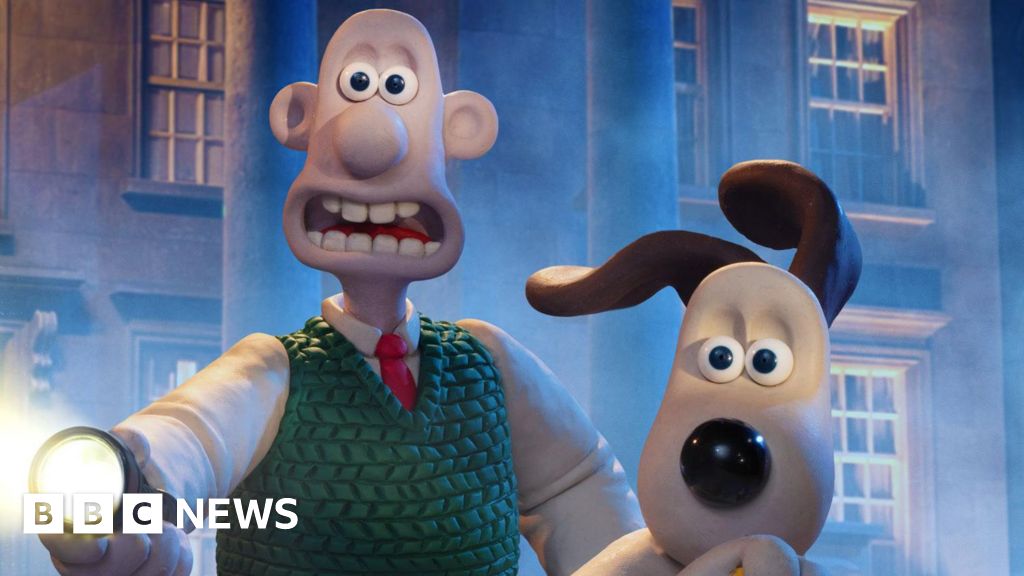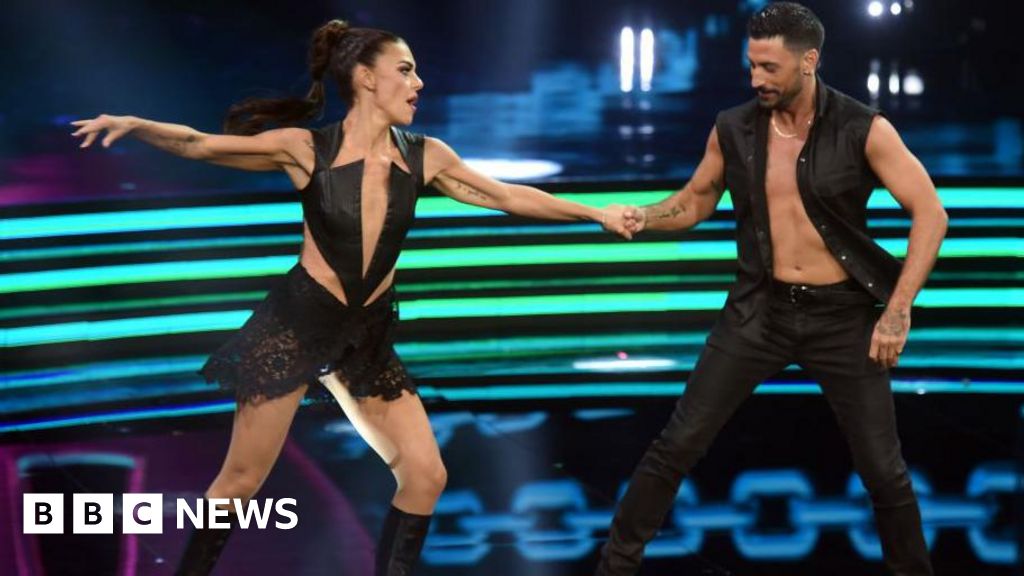ARTICLE AD BOX
By Alex Taylor
BBC Entertainment reporter
image source, Netflix
image captionActor George Robinson is a wheelchair user like his Sex Education character, IsaacSex Education star George Robinson knows his character Isaac has a spiky reputation, and that's just how he likes it.
The British actor, who is a wheelchair user, says he relished subverting "saintly" audience expectations as the teen comedy drama's first disabled character - playing a villainous role in last season's cliff hanger ending.
Spoiler alert: There are some references to events in series two and three below.
After forming a seemingly close friendship with Maeve (Emma Mackey) and witnessing the tumultuous romantic tension between her and classmate Otis (Asa Butterfield), Isaac shocked viewers by surreptitiously intercepting and deleting a voicemail from Otis in which he professed his love to her.
It sets up a tantalising love triangle dynamic for the third season of the hit Netflix show, which boldly tackles the diverse sex, love and personal lives of the students and locals surrounding Moorvale secondary school.
image source, Netflix
image captionIsaac complicates the relationship Otis (pictured) has with Maeve"I really love playing Isaac," Robinson tells the BBC, saying the reason is because the character is a bit of a divisive figure, adding that he believes people in the disabled community just want the opportunity to be seen with all their flaws.
He explains that the representative power of his character comes from Isaac's wit and headstrong self-confidence - traits that are rarely, if ever, seen in disabled characters on screen.
"The feedback I've got from within the disability community is that it's really refreshing to see someone who is so comfortable within themselves and not questioning their existence," he says.
Playing such a self-assured character has also had a positive impact on Robinson himself, who became quadriplegic aged 17 after an injury during a school rugby match left him with a broken neck and injured spinal cord.
The role of Isaac was originally written for an amputee, but producers committed to re-write the character based around the disability of the successful applicant.
Now 24, Robinson says he's "learned a lot" from Isaac "in terms of being comfortable within my own skin and not having to apologise" for himself.
His storyline contrasts with how often lazy disability narratives - generally presented as inspirational or tragic - have dominated popular culture.
The 2016 film adaptation of Jojo Moyes' bestselling novel Me Before You, for instance, saw non-disabled actor Sam Claflin play the lead role of Will, who, having been paralysed in a motorcycle crash, feels life is no longer worth living and plots to end his life.
Despite falling in love with his new caregiver, Louisa, played by Emilia Clarke, he nevertheless pushes ahead with his plan, telling her: "I can't be the kind of man who just accepts this."
The film, which closes with him undergoing an assisted suicide procedure, drew heavy criticism for implying that death is preferable to living with a disability and for choosing to exclude disabled actors from disabled roles.
'Authentic' disability representation
Robinson emphasises that disability representation doesn't just come down to seeing disabled characters on-screen - it also has to genuinely reflect the disabled experience, akin to RJ Mitte's turn as Walter Jr. in Breaking Bad.
He says the writers of Sex Education helped ensure this by including him in the creative process and using his own experiences to help inform Isaac's storyline.
image source, Netflix
image captionBoth Robinson and Mackey hope their on screen relationship can help lessen the stigma around disability and sexOne such moment last season saw Isaac arrive at a house party with Maeve, only to find a flight of stairs potentially blocking his way - a situation Robinson says he, and many other disabled people like him, have "encountered many times".
"Often, people would see that scene and expect the character to say 'Oh, don't worry, I'll have to go home,'" reflects Robinson.
But rather than turn back, Isaac enlists the help of others to carry him down the stairs in his chair.
"It's the fact that Isaac goes, 'No, I'm going to this party, you're going to carry me down, I don't care'… it's such a lovely thing to see on screen - someone who's unapologetically themselves," he continues.
He adds that for people like Isaac "whether people accept that or not is irrelevant to them because they're going to live their life and they're totally valid in doing so".
This kind of on-screen representation is especially powerful because it "breaks down the taboos" surrounding disability.
"Often people don't necessarily know what to say just because they haven't got that experience. But if they see it on screen that changes. More and more these days we learn about society from TV and media," he says.
"I hope that through Isaac, people see how to treat someone with disability as if they were treating anyone else, regardless of it."
And because Isaac is far from innocent and angelic, Robinson feels "it allows other conversations to be opened up" to the audience about disability that would otherwise go unchallenged or unspoken.
Challenging audiences
Nowhere has this need been made more apparent than by the nature of the online reaction to Isaac's role as season two's antagonist.
Many on social media unsurprisingly expressed frustration when debating his voicemail deletion, but a minority have persistently referenced Isaac's disability within this - posting memes and gifs of wheelchairs being pushed downstairs or set on fire in retaliation.
Robinson says he has watched the messages with interest - including threats from people detailing what they would do to Isaac if they saw him in public.
Discussing the trolling, he says "the problem is lot of discussions online about Isaac are often only communicated through memes. This is inherently problematic because it's a very superficial, visual medium that requires us to add the context".
"I like to assume that the reason most people hate Isaac is not because of his wheelchair, but because he's not necessarily likeable. However, the only way memes can communicate this is presented physically, through the wheelchair."
But Robinson makes clear that while this is an explanation, it's certainly not a justification.
"It doesn't make it right at all. It shows there's still a long way to go in terms of how these issues are presented and how people talk about disability. It's not on."
Getting intimate
Season three sees Isaac become more fully rounded, giving audiences a more intimate look at his character and relationship to his disability.
image source, Netflix
image captionRobinson hopes intimate scenes between Isaac and Maeve will help remove any stigmaThis is especially true in how his storyline progresses with Maeve, with the pair forming a strong emotional bond that eventually moves to the next level (we won't reveal the impact of the voicemail).
As neighbours at the local caravan park, both are looking for success against the odds. Isaac, an aspiring artist, relies on his brother for care, while Maeve juggles battling the family fallout of her estranged mother's drug addiction with reaching her gifted academic potential.
The season also sees Isaac break with their usual dark-humoured jousting to tell Maeve: "That's why you give me a hard time, more than anyone else, because you know that's what is going to make me feel seen."
Robinson says the line is "really beautiful" as it turns the tables on the viewer and explores the complexity of disability from Isaac's perspective.
It also dares to call out the toxic way Isaac can sometimes "play the disability card", Robinson explains.
"Even though we don't want to have it played to us, we can sort of play into it and make people feel bad for saying stuff," he explains.
"I think what Isaac is saying there is 'you don't let me get away with that. You not only recognise my problematic behaviour but don't let me dip into it... and that's what makes me feel valid'".
The same unflinching approach is taken to an intimate scene between the pair that Robinson feels acts as an "important cultural moment", particularly for teen dramas, in normalising disability and sex.
One survey, from 2014, suggests that 44% of Britons sampled wouldn't consider having sex with someone who had a physical disability.
The scene addresses the stigma, but in low-key fashion. Robinson says it works because it "doesn't pander" to its own significance and instead flows naturally in terms of the story and Isaac's relationship with Maeve.
It sees the pair tenderly discuss each other's needs and bust open society's unspoken curiosity. Both Robinson and Mackey, who plays Maeve, spent a long time working with intimacy coordinators and disability charities ahead of filming - aware of the positive impact it could have on perceptions.
"I'm really happy where we got with it," says Robinson. "What makes that scene so beautifully crafted is the way it speaks to how sex isn't always about the physical stuff but the intimate act of opening yourself up to one another. That's really what sex is."
It also points to the wider message Robinson wants to send with his portrayal.
"I just show that disabled people are everything: We're fathers, we're sons, we go through economic problems, we have problems with relationships, we have all of these things. And yes, we are intimate sexual beings just like everyone else."
Follow us on Facebook, or on Twitter @BBCNewsEnts. If you have a story suggestion email entertainment.news@bbc.co.uk.

 3 years ago
34
3 years ago
34








 English (US) ·
English (US) ·